Problem Solving Worksheets for Ages 4-6
8 filtered results
-
From - To
Discover our engaging "Problem Solving Worksheets for Ages 4-6," designed to nurture critical thinking and cognitive skills in young learners. These worksheets incorporate playful themes and age-appropriate challenges, encouraging children to explore everyday dilemmas creatively. By solving puzzles, matching activities, and brain teasers, little ones develop essential problem-solving strategies while having fun! Tailored for early learners, our vibrant and interactive materials support independent thinking and collaboration. Perfect for home or classroom use, these worksheets make learning enjoyable and effective. Help your child build confidence, critical reasoning, and essential life skills—explore our collection today and watch their creativity blossom!
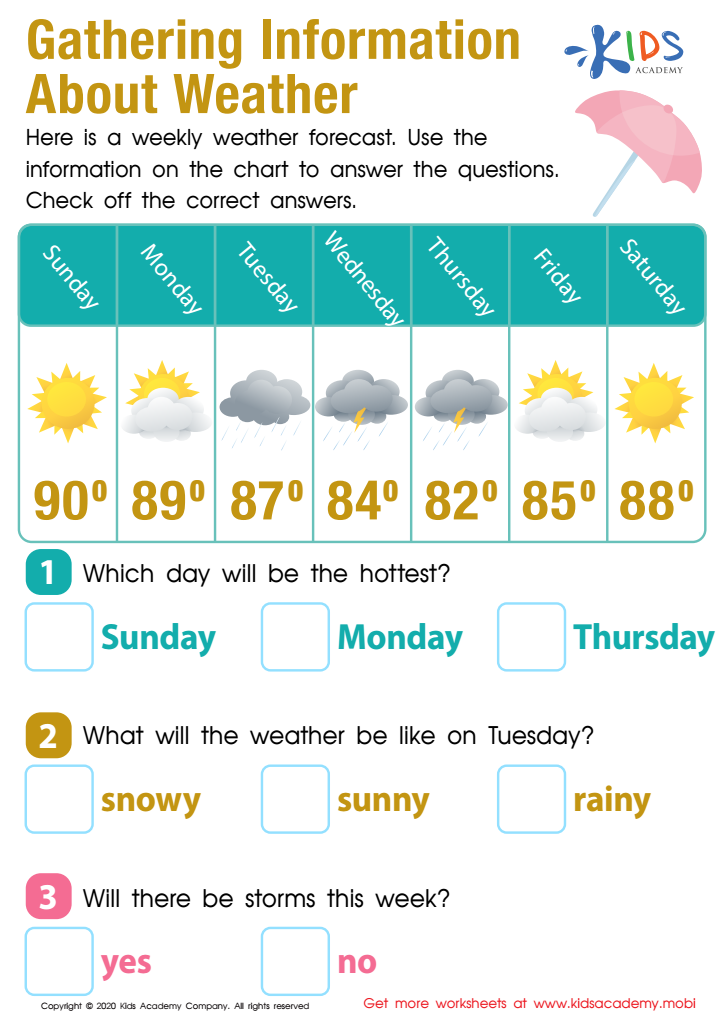

Gathering Information About the Weather Worksheet
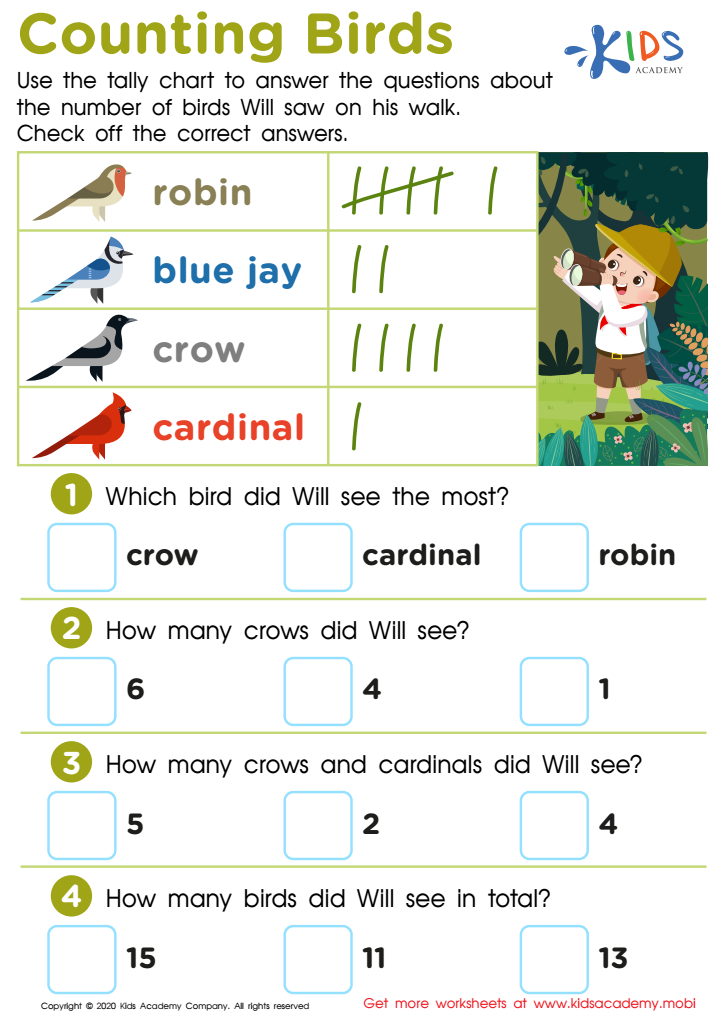

Counting Birds Worksheet
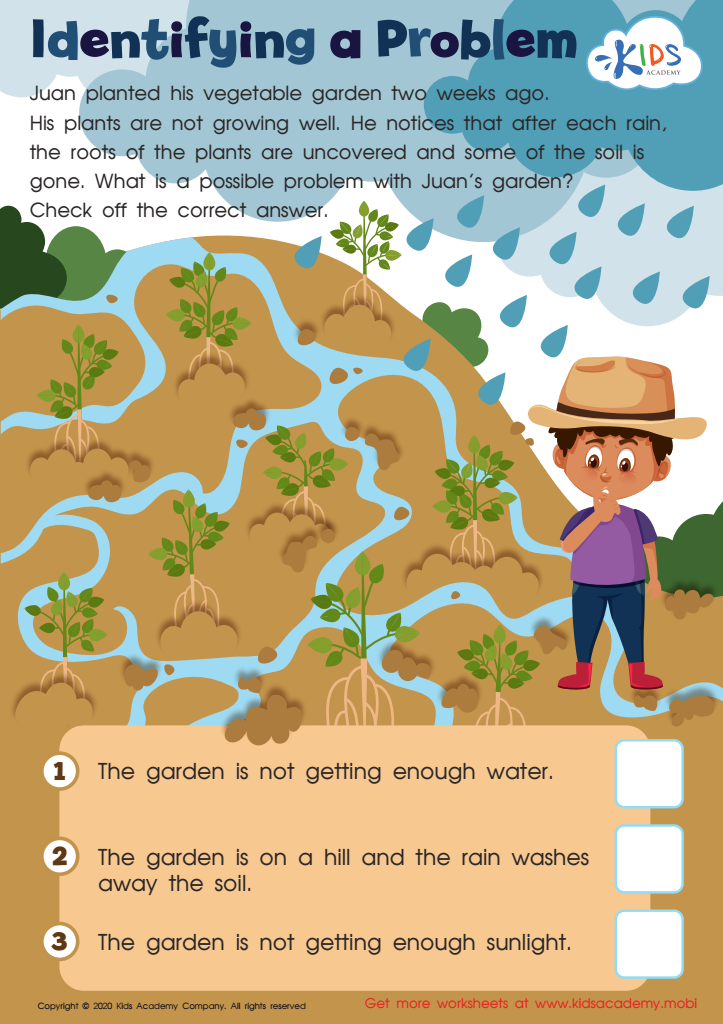

Identifying a Problem Worksheet
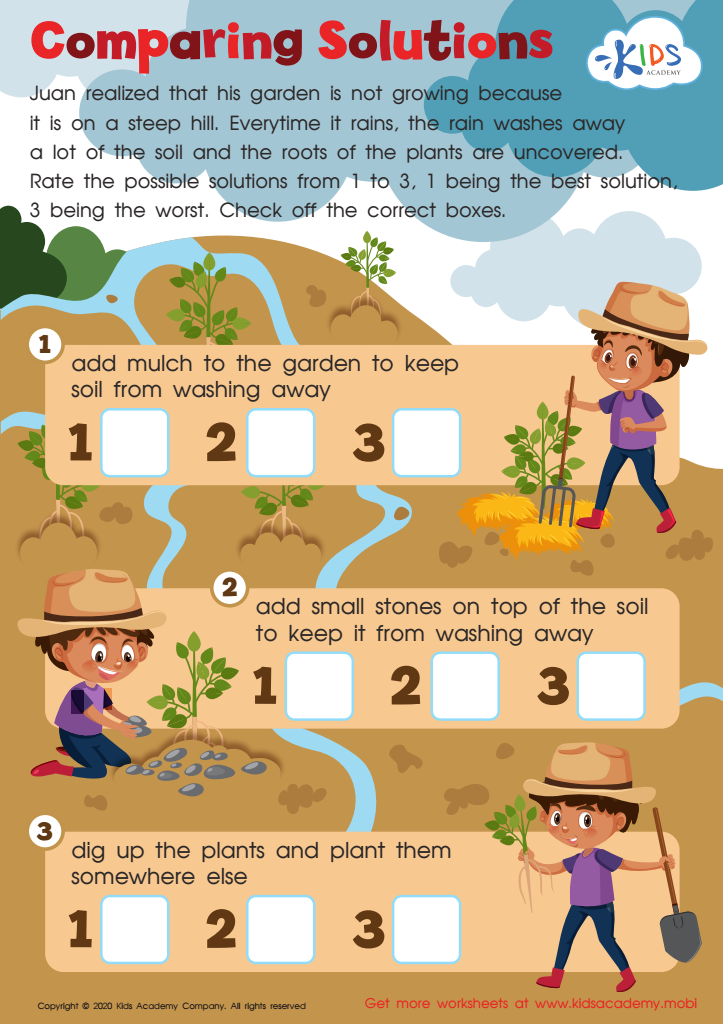

Comparing Solutions Worksheet
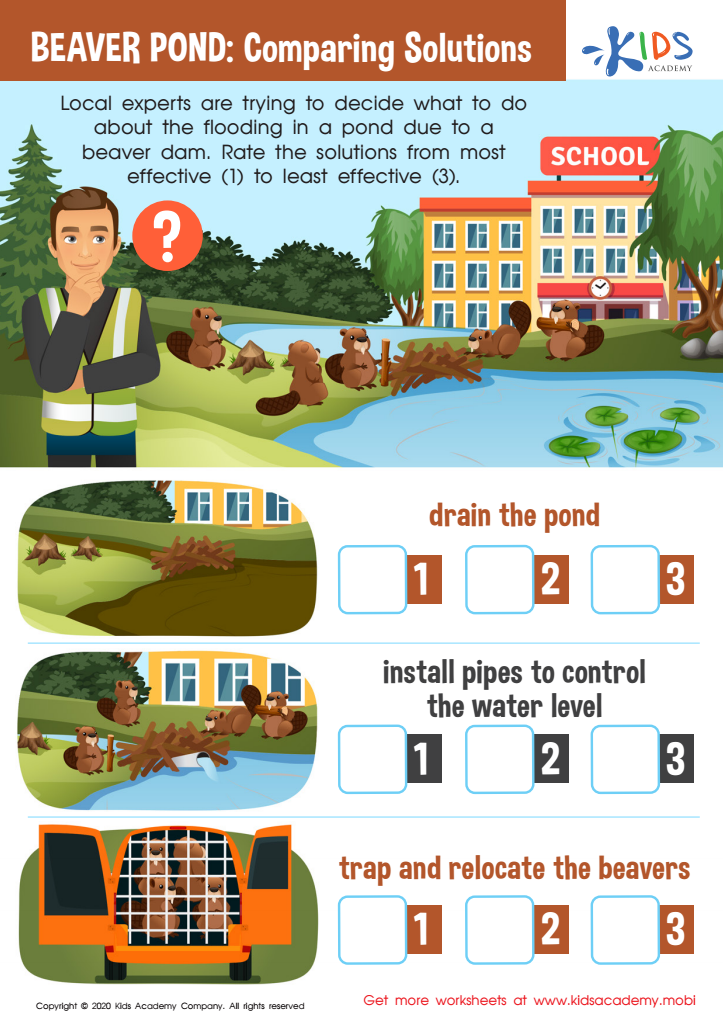

Beaver Pond: Comparing Solutions Worksheet
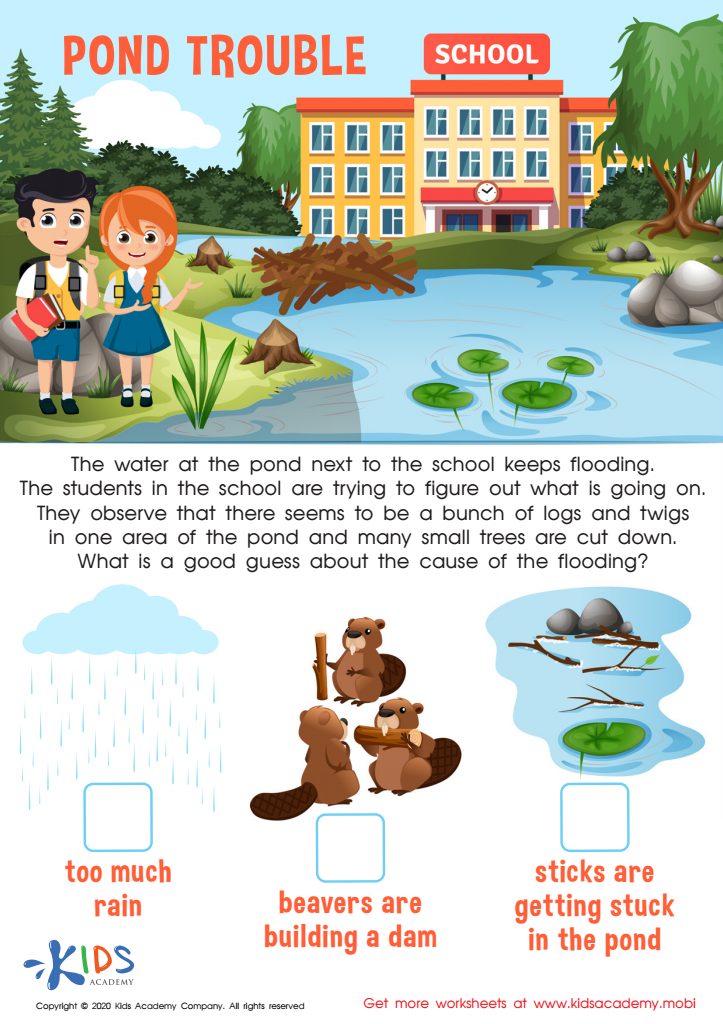

Pond Trouble Worksheet
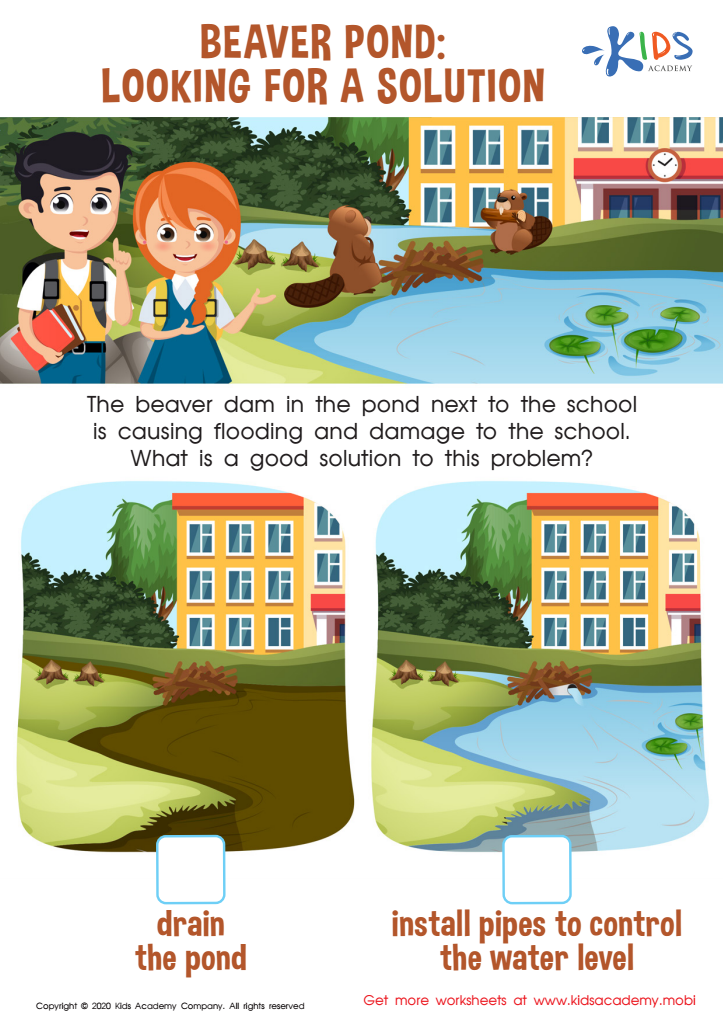

Beaver Pond: Looking for a Solution Worksheet
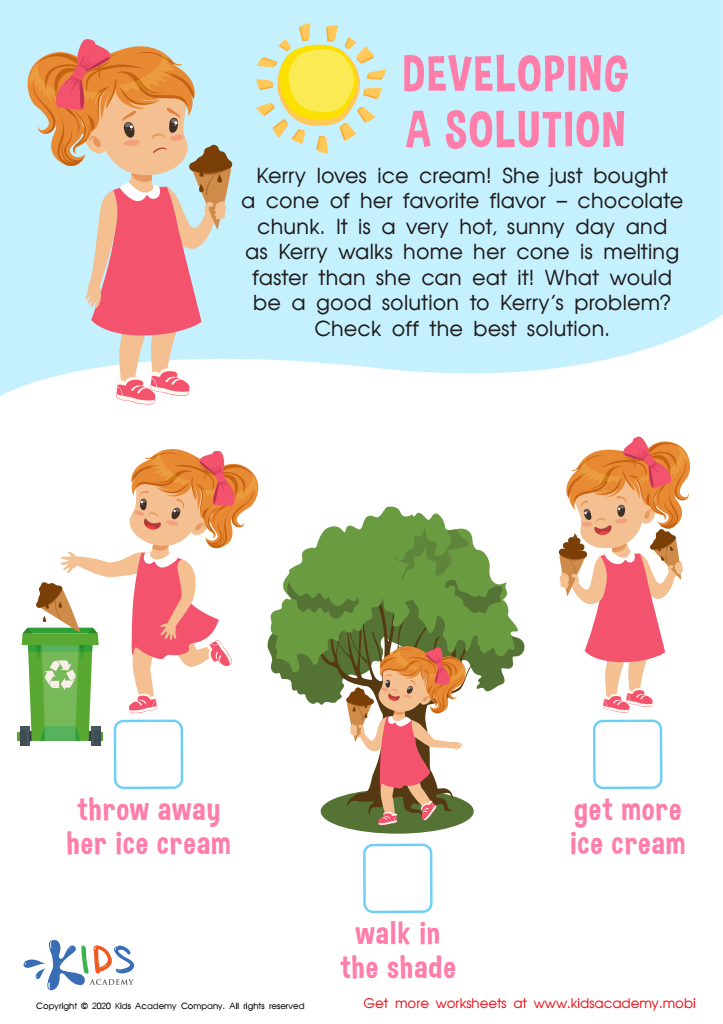

Developing Solution Worksheet
Parents and teachers should prioritize problem-solving skills for children ages 4-6 because these skills are fundamental to developmental growth and future success. At this stage, children are naturally curious and eager to explore their environment. Engaging in problem-solving activities allows them to use critical thinking to navigate challenges, fostering their ability to find solutions independently.
Problem-solving promotes cognitive development by enhancing logical reasoning and encouraging creativity. It helps children learn how to analyze situations, evaluate options, and make informed decisions—skills that are valuable throughout life. Additionally, cooperative problem-solving activities can improve social skills, as children learn how to communicate their ideas, listen to others, and work together as a team.
Furthermore, instilling problem-solving abilities early leads to greater academic achievements later on. Children who develop these skills are often more resilient and adaptable, which prepares them for increasingly complex tasks as they grow. Ultimately, cultivating problem-solving in young children lays a strong foundation for their future education, personal development, and social interactions, ensuring they become capable, confident, and innovative thinkers. Involving parents and teachers in this process enriches learning experiences and supports a collaborative approach to child development.
 Assign to My Students
Assign to My Students




















